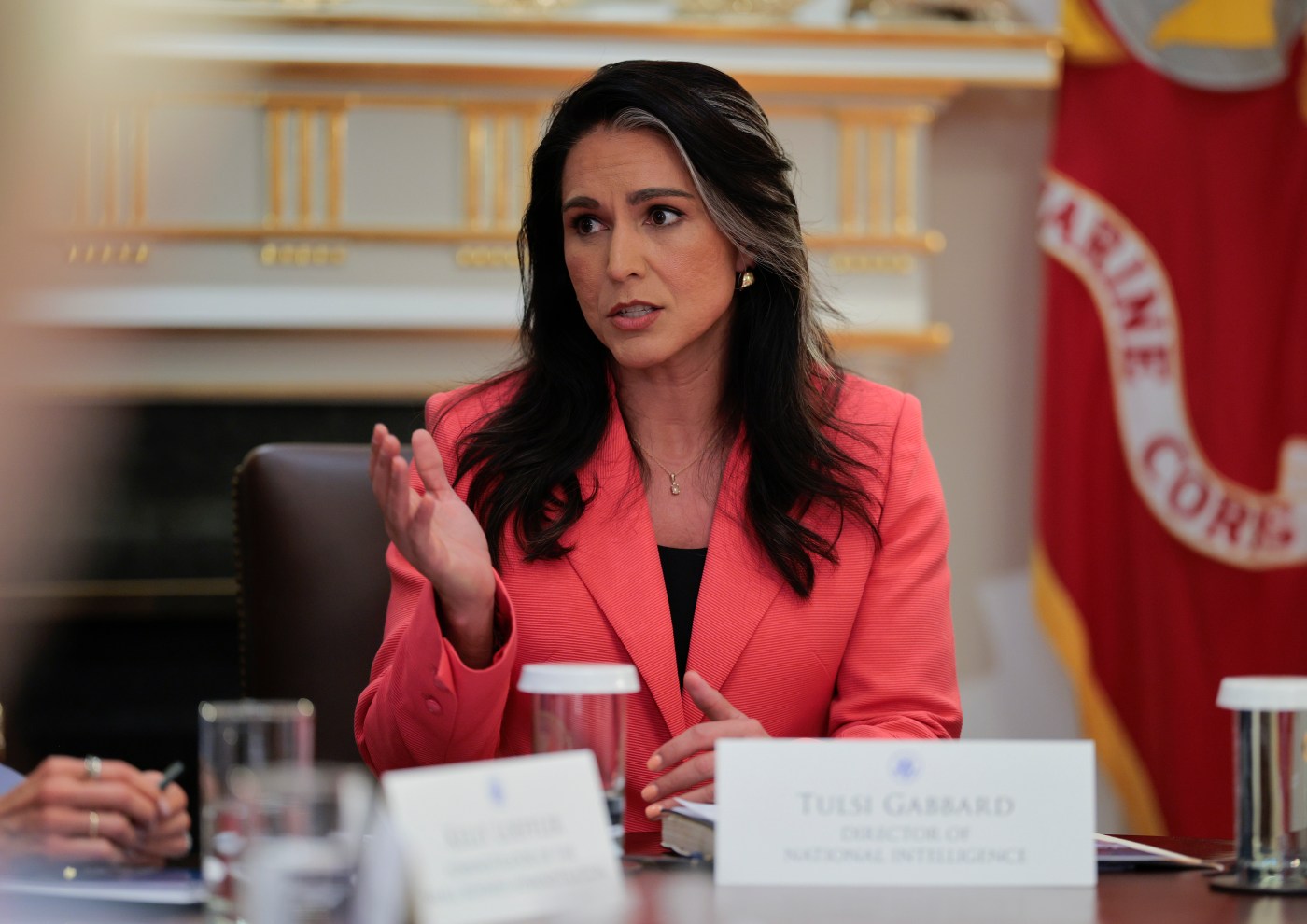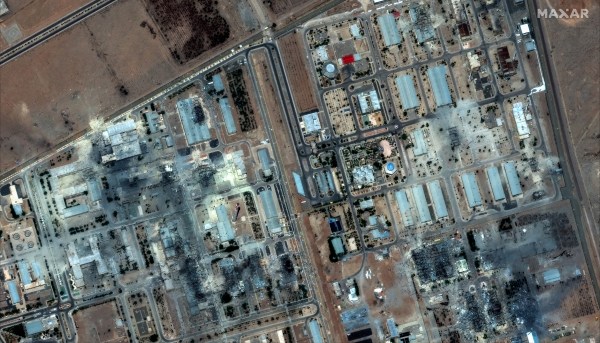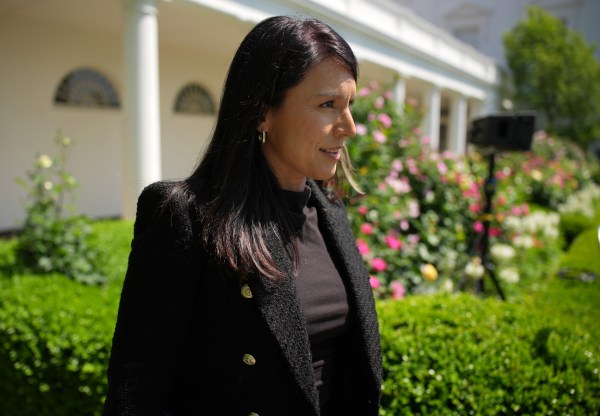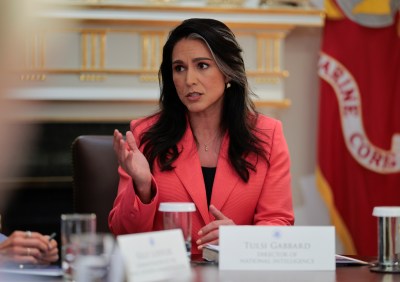The Trump administration is gutting America’s national security apparatus. Undoing the damage could take decades.
Director of National Intelligence Tulsi Gabbard recently confirmed that the Trump administration had revoked the security clearances of 37 current and former national security officials. Gabbard even publicly circulated the names of these officials—heedlessly blowing the cover of at least one CIA case officer in the process—and baselessly accused them of “politicizing and manipulating intelligence, leaking classified intelligence without authorization, and/or committing intentional egregious violations of tradecraft standards.”
These moves, coupled with purges of counterespionage prosecutors and intelligence officials across the federal government, present a clear and present danger to United States national security. The result could be generational harm to America’s foreign intelligence and internal security services, leaving the country vulnerable in future armed conflicts with its adversaries.
Many of the officials whose clearances Gabbard lifted last week came to the attention of right-wing conspiracy theorist Laura Loomer because they earlier signed a public letter questioning President Donald Trump’s unsuccessful effort to extort Ukrainian President Volodymyr Zelensky into investigating Joe Biden before the 2020 election. Others were targeted for accurately warning of Russia’s attempts to covertly influence the 2016 election in Trump’s favor. Meanwhile, career national security personnel have been fired for reasons ranging from investigating and prosecuting participants of the January 6, 2021, Capitol riots to contradicting Trump’s claim that U.S. strikes in June had left Iran’s nuclear sites “completely and totally obliterated.”
In apparent retaliation for his criticism of the president, former National Security Adviser John Bolton lost first his clearances, then his Secret Service detail—even as Iranian operatives were indicted for plotting to murder him for his role in the first Trump administration’s killing of Quds Force commander Qassem Suleimani. Finally, last month, the administration ordered FBI raids of Bolton’s home and office as part of an investigation into whether the former Trump official illegally shared or possessed classified information.
Much of what the administration is doing now is illegal, and will likely be overturned by the courts in due course. There’s good reason to believe the public and politically motivated purges violate a number of federal laws, including the Administrative Procedure Act, the Privacy Act, and the Due Process Clause of the Fifth Amendment. But as a former Army and CIA officer myself, I fear the White House’s meddling in the meantime will inflict lasting harm on the intelligence community’s ability to protect the homeland.
First, there may be a rush to the exits within America’s intelligence, foreign, and security services by those who disagree with the Trump administration’s policies, particularly experienced personnel with vested pensions. Mid-career officials who possess the skills and work ethic to succeed in the private sector will similarly depart, leaving behind some who lack similar talent and drive. Meanwhile, years’ worth of expensively recruited, vetted, and trained probationary employees have already been dismissed.
Worse, who will seek to join organizations such as the Central Intelligence Agency or the Foreign Service under the present circumstances? Many of the best recruits for intelligence and diplomatic work have traditionally come directly from elite colleges or graduate schools, or a few years later, from Wall Street banks and law firms, to engage in meaningful public service. This career choice always involved financial sacrifice, as well as hardship and even danger, but it also came with respect and job security.
But if civil servants can be fired at will—and libeled or slandered on their way out the door—why choose a modest government salary instead of lucrative, comfortable, and safe work in consulting, finance, or technology? Certainly few national security officials will now encourage their children to follow in their footsteps.
Second, Trump’s neuralgia about public or even private criticism by his subordinates of Russia’s Vladimir Putin or China’s Xi Jinping, strongmen whom he deeply admires, leaves the door wide open for these adversaries’ espionage services to infiltrate the U.S. government. At the same time, FBI agents are being reassigned from counterespionage duties to provide perimeter security for Immigration and Customs Enforcement raids on illegal immigrants (a sizable majority of whom have no criminal record), and the Department of Justice’s counterintelligence section is hemorrhaging experienced prosecutors.
And counterintelligence problems can take decades to resolve. The United Kingdom’s security and intelligence services were tied up in knots for four decades over the damage done by the “Cambridge Five,” a ring of spies whom the KGB used to penetrate MI5 and MI6 during World War II and into the Cold War. The CIA and FBI are still hunting for the as-yet unidentified turncoat who, along with the agency’s Aldrich Ames and the FBI’s Robert Hanssen, fatally betrayed America’s human sources in Russia in 1985. Individuals being seeded into the U.S. government or turned within it by the Russians and Chinese now will present counterespionage problems for decades to come.
Finally, Trump’s unwillingness to hear from his intelligence services information that he does not like, simply because he believes it makes him look weak or wrong, as well as his willingness to fire those who dare to speak candidly, risks catastrophic failure.
Trump foolishly believes Putin and North Korea’s Kim Jong Un are his friends, to the extent that he has refused to listen to reports of the growing threats they pose. The president desperately wants a massive trade deal with China, such that he praised Xi’s “transparency” during the opening days of the COVID pandemic. He is convinced U.S.-led forces defeated the Islamic State in 2017, just as he is determined to believe that a single bombing run destroyed Iran’s nuclear program in June.
What if multiple corroborative reports suggest that Putin plans to seize a Russophile part of a Baltic state’s territory in order to break NATO unity, thereby fracturing its Article 5 collective defense guarantee? What if all-source analysts conclude that North Korea plans to conduct an atmospheric test of a nuclear-tipped ballistic missile over the Pacific? What if a vetted source with excellent access says that China plans to blockade Taiwan and strangle it into submission? Or what if Islamic State members from Central Asia who slipped across the U.S. southwest border during the Biden administration plan a terror attack on the homeland? What if Iran quietly continues to progress toward a nuclear weapon?
Will DNI Gabbard, CIA Director John Ratcliffe, or FBI Director Kash Patel present that unwelcome reporting and analysis to Trump? If they do, and the president is displeased, will Secretary of State Marco Rubio and Defense Secretary Pete Hegseth back their colleagues up? Given the administration’s record of revoking intelligence officers’ clearances, firing law enforcement personnel, and forcing generals into early retirement, I doubt it.






Please note that we at The Dispatch hold ourselves, our work, and our commenters to a higher standard than other places on the internet. We welcome comments that foster genuine debate or discussion—including comments critical of us or our work—but responses that include ad hominem attacks on fellow Dispatch members or are intended to stoke fear and anger may be moderated.
With your membership, you only have the ability to comment on The Morning Dispatch articles. Consider upgrading to join the conversation everywhere.